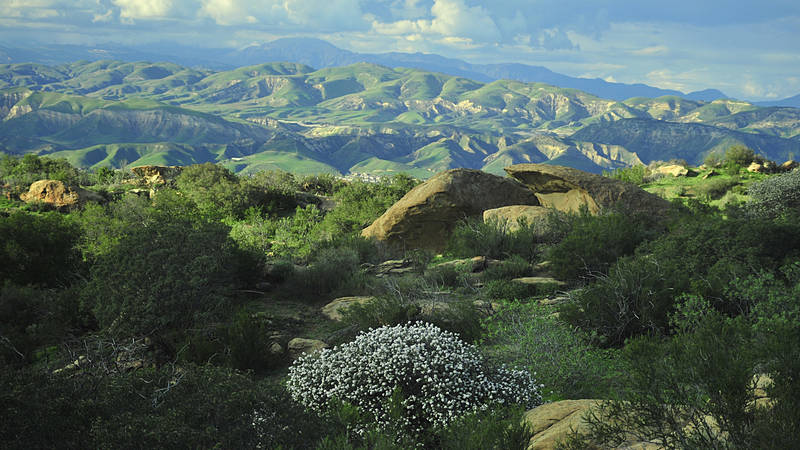NPCA is calling on Congress to support recently introduced legislation that would provide $250 million for national parks’ long-underfunded cultural resources and history programs.
Since its establishment in 1916, the National Park Service has been mandated by law to protect U.S. history and culture. The Park Service manages 26,000 historic structures, and its archivists are responsible for nearly 185 million historic artifacts and objects.

Challenge Congress to Provide $250 Million for History and Culture at our National Parks
History is at the heart of our national parks. Many national parks preserve stories of a battles, turning points, triumphs, and tragedies, or simply the lives of ordinary Americans. Since…
See more ›Two-thirds of our more than 420 national park sites are dedicated to history and culture. Yet inadequate budgets from Congress have led the agency to prioritize the management of natural resources over the cultural resources that tell our country’s history. It is important that the Park Service receive sufficient funding for both types of parks, as NPCA’s recently released “Cultural Resource Challenge” report points out.
Here are frequently asked questions about what NPCA’s Senior Director of Cultural Resources Alan Spears calls the “quiet crisis” facing the preservation of our cultural resources — and what can be done about it.
What are cultural resources?
The National Park Service manages one of the largest museum collections in North America. Every national park has a historic or cultural story to tell. And each one has resources — personal letters, military dispatches, cartoons, clothing, signage, photographs and video that help to tell those stories.

A mid-19th century, iron padlock from Castillo de San Marcos National Monument in Florida.
NPSCultural resources are as large as Revolutionary and Civil War cannons, a three-masted sailing ship in San Francisco Bay, and historic structures at Casa Grande Ruins, the San Antonio Missions and Appomattox Courthouse. They also are as small as women’s suffrage protest banners, Frederick Douglass’ dumbbells and poet Carl Sandburg’s NPCA membership card.
Why does the Park Service need additional support in preserving cultural resources?
The National Park System has grown by 11% since 2001, mostly through cultural and historic sites designated by Republican and Democratic administrations and Congress. These additions allow the National Park Service to tell broader stories of our country. These places and their artifacts form our shared heritage, but they also add to the volume of material that must be interpreted, managed and preserved by the Park Service.
Also, NPCA and the Park Service want all our cultural and historical parks to be ready for our country’s 250th anniversary on July 4, 2026, when we anticipate more people will flock to sites related to our country’s birth.

A van displayed at Tuskegee Institute National Historical Park in Alabama.
©Alan Spears/NPCASome of the world’s best storytellers work for our National Park Service. The agency needs more of these staff members. It needs well-trained, engaged and innovative experts who can document stories, bring life to historic and cultural resources, plan for the long-term preservation of those resources, and inspire the public to care about the common touchstones of our shared past.
How bad is the quiet crisis?
Since 2011, the Park Service has experienced a 25% decrease in the number of historians it has on staff. It now employs only 138 full-time historians out of 20,000 total staff members. The issue doesn’t stem from a callous disregard by agency personnel or poor management — just a lack of funds.
This shortage means that, frequently, historic and cultural resource protection work falls to those specializing in other areas, such as the same ranger whose main responsibility is keeping ecosystems thriving at the park but also must give tours and clean restrooms. Juggling responsibilities like this causes parks and staff to suffer. Also, since 2011, park funding for cultural resources stewardship has decreased by 11.5% — leaving many resources and stories unprotected, undocumented and untold.
Additionally, funding shortfalls have left the Park Service without the resources and information they need to protect against climate change. Without new funding to properly study the potential impacts of climate change on America’s historic sites, thousands of historic buildings, monuments and artifacts could be lost to fire, flood and other climate-related events.
Severe flooding already has harmed historic landscapes such as Harriet Tubman Underground Railroad National Monument on Maryland’s Eastern Shore and in historic buildings at Harpers Ferry National Historical Park in West Virginia. Wildfire has already taken a toll on historic resources at Santa Monica Mountains National Recreation Area.
Specifically, how are staff shortages affecting parks?
At Colonial National Historical Park in Virginia, for example, centuries of important history rests on the shoulders of just one staff member who is responsible for assessing and managing more than 2 million artifacts and museum collection pieces. These include pieces at Fort Monroe National Monument, which represents the place where African people first arrived in 1619, among other significant pre-colonial and colonial events. Some items already have been damaged by severe storms.
At Ocmulgee National Historical Park in Georgia, the lone cultural resource specialist retired in 2021, and the position has remained vacant. Only .00067% of artifacts uncovered in a 1930s-40s archaeological dig have been processed and displayed in the park’s museum. Items that remain unstudied and out of view could change what we know about the history of this area and its Native people.
How does NPCA’s report address the cultural resources crisis?
NPCA’s report serves as a wake-up call to Congress and the public that a long-overdue funding issue has created a serious problem, specifically for U.S. history. It underscores and explains the Park Service’s most pressing needs, based on information provided by the agency’s cultural resource stewardship workforce.
The report, which NPCA staff have worked on for years, states the Park Service needs at least $250 million in appropriations over five successive fiscal years.
This infusion of funds will:
- Ensure the hiring of 450 historians, archivists, ethnographers and other cultural resources experts.
- Aid in building a comprehensive, integrated plan for managing historic and cultural resources, including a system-wide plan for protection against climate change threats.
- Support long-underfunded cultural resources and history programs.
- Allow for digitized archives, which would expand visitor access to distinctive U.S. artifacts and help park professionals keep better track of the Park System’s historic objects.
- Expand specialized support for Tribal historic preservation, including retention of Native languages.
How has Congress responded to NPCA’s report?
NPCA released its report on April 2, and two days later, U.S. Rep. Paul Tonko (D-NY-20th) introduced the Cultural Resource Challenge Act of 2024 (HR 7936) to provide the necessary $250 million between 2025 and 2030 for historic and cultural resources at U.S. national parks.
NPCA supports this legislation because it would breathe new life into cultural resources management and preservation. “This bill would help equip the Park Service to continue to serve as some of America’s greatest storytellers, and protect our American legacy for generations to come,” said Alan Spears, senior director of cultural resources.
Tonko is a longtime supporter of national parks and authored the bipartisan National Heritage Area Act, which Congress passed in late 2022.
Will a lack of attention to cultural resources affect the 250th anniversary of U.S. independence?
Yes, it could greatly affect this commemoration on July 4, 2026. While the cultural resource struggle has been brewing for years, it is reaching a critical point as the United States prepares to commemorate 250 years since its independence from Great Britain. Hundreds of national parks will be at the center of this event, with rangers teaching visitors of all ages the rich and complex history that created this nation.
Congress: Aid the Park Service in managing historic and cultural resources.
Urge Congress to support H.R. 7936, Representative Paul Tonko’s legislation to provide $250 million for long-underfunded cultural resources and history programs at America’s national parks. We must ensure America’s national parks and the people who work so hard to protect them are prepared against climate change.
Take ActionAs NPCA’s report states, our parks can inspire efforts to create and sustain a more perfect union. Park rangers bring history to life and create unforgettable experiences for visitors at hundreds of national park sites dedicated to American history. The issue isn’t if people will flock to our national parks but rather, what kind of experience they will have when they get there.
How can park lovers help ensure cultural resources are protected?
National park enthusiasts can support the effort to ensure all National Park Service programs are adequately funded and well-staffed by urging their member of Congress to support the Cultural Resource Challenge Act of 2024 (HR 7936).
Stay On Top of News
Our email newsletter shares the latest on parks.
About the authors
-
 Kyle Groetzinger Associate Director, Communications, Mid-Atlantic, Southeast, Sun Coast, Texas
Kyle Groetzinger Associate Director, Communications, Mid-Atlantic, Southeast, Sun Coast, TexasKyle Groetzinger joined NPCA in June 2019 and serves as Associate Director of Communications. He leads communications strategy and media outreach efforts for the Mid-Atlantic, Southeast, Sun Coast, and Texas regions, along with the organization’s cultural resources and future parks teams.
-
 Linda Coutant Staff Writer
Linda Coutant Staff WriterAs staff writer on the Communications team, Linda Coutant manages the Park Advocate blog and coordinates the monthly Park Notes e-newsletter distributed to NPCA’s members and supporters.
-
General
-
Issues


